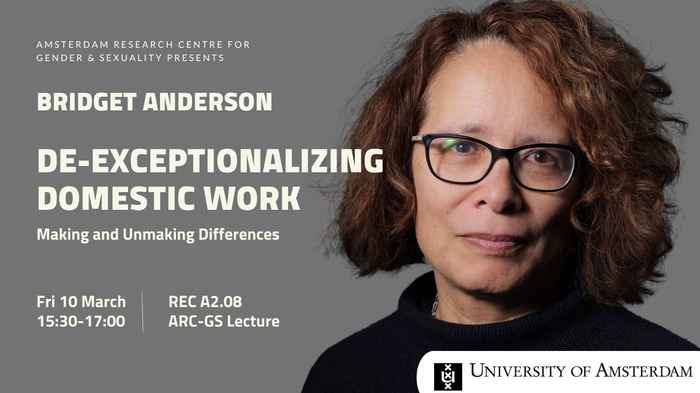De-exceptionalizing domestic labour: making and unmaking differences
- Date
- 10 March 2023
- Time
- 15:30 -17:00
- Location
- Roeterseilandcampus - building A
- Room
- A2.08

I will start by consider immigration controls as difference making mechanisms, interacting with race, class, and gender; I will then consider the role of states in exceptionalising domestic work and in making migrants. Examining the mechanisms for institutionalising difference in this way can help us uncover important connections between different groups of migrants and between migrants and citizens that have the potential to be both analytically and politically productive. To illustrate this, I will draw on a range of previous research but principally a project conducted for the ILO on working conditions and attitudes towards migrant domestic workers in Thailand and Malaysia.
About the speaker
Bridget Anderson is Professor of Migration Mobilities and Citizenship at the University of Bristol. She explores human movement, and related experiences, politics, policies and practices, starting from a recognition that the differences between 'migrant' and 'citizen' are socially and legally constructed.
Registration
Not required
